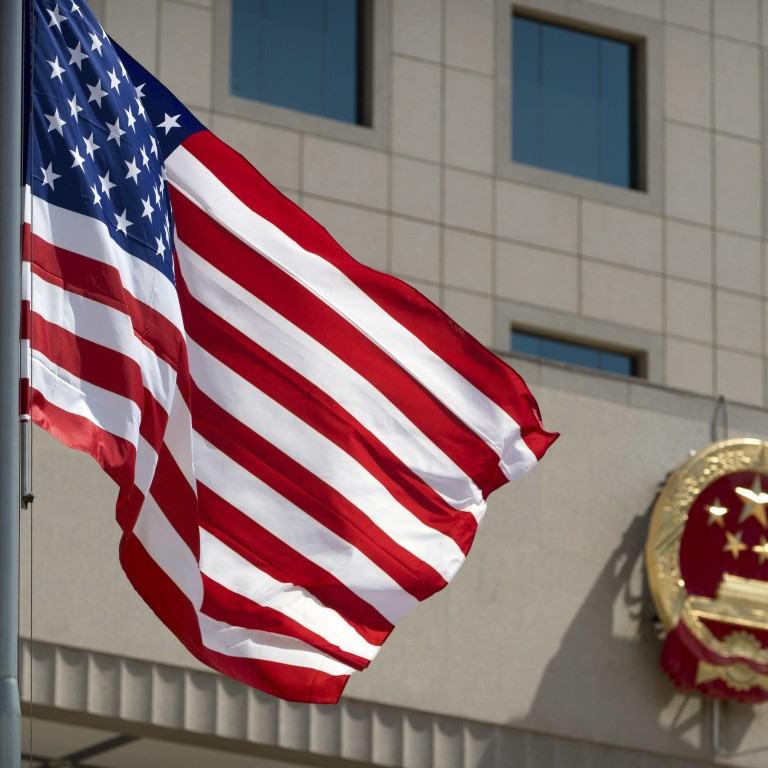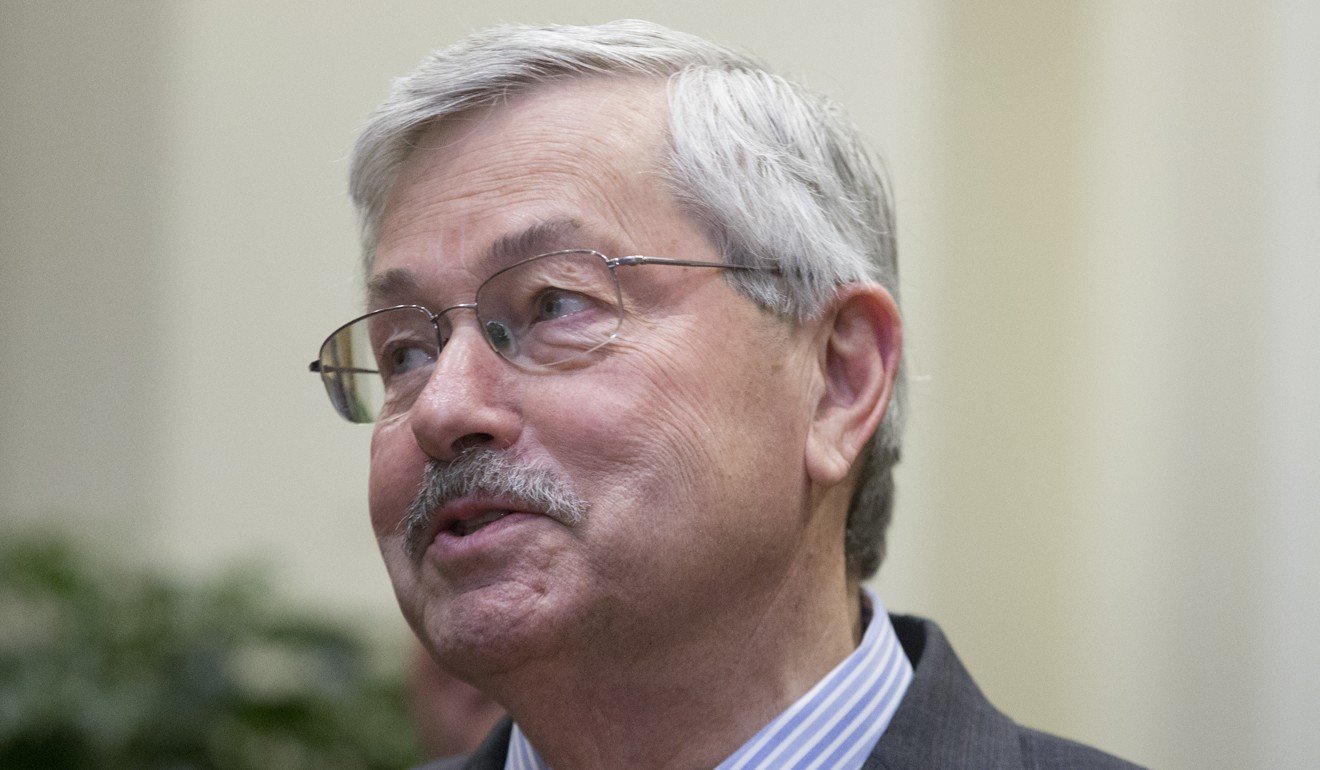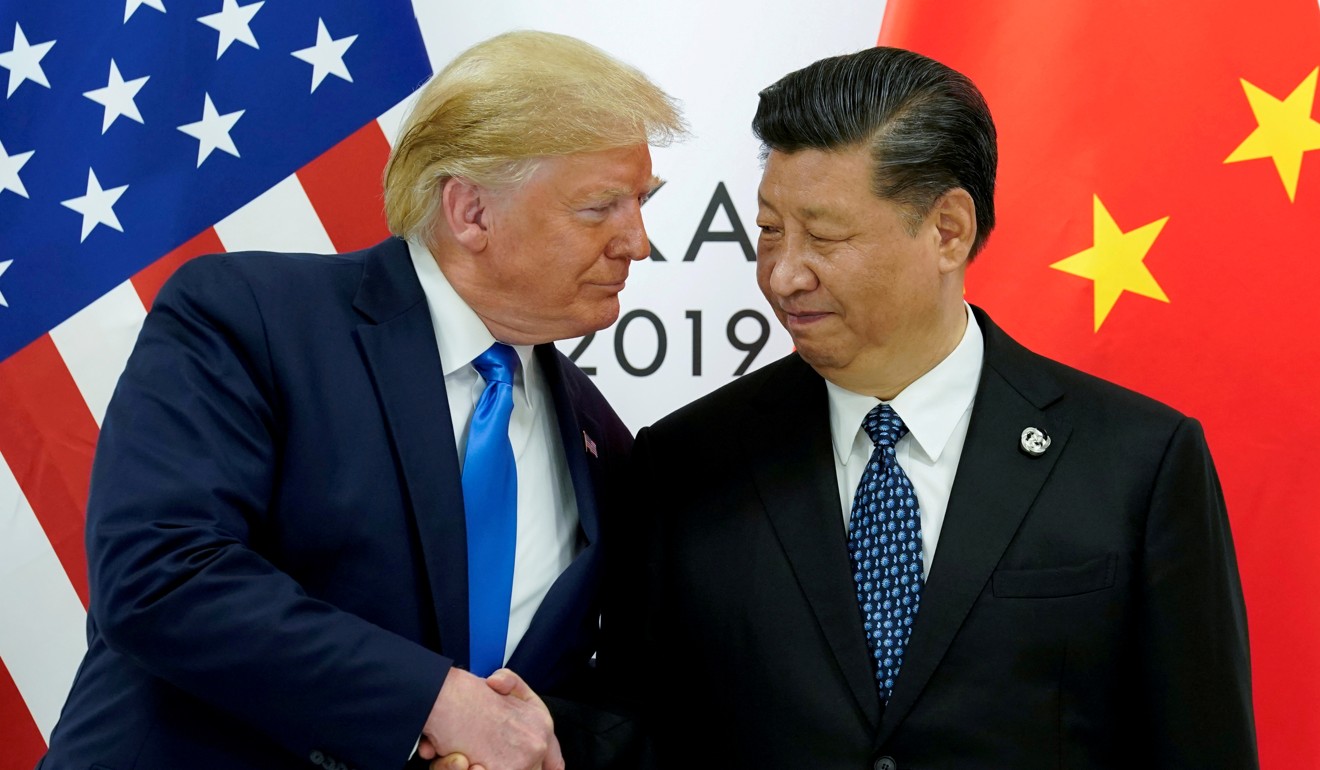
Just bluster? Beijing angered after Trump signs Hong Kong acts, but little sign of trade talks fallout
- China takes aim at US after president signs act allowing sanctions against Hong Kong government
- But Beijing still not in a rush to sign an agreement that would end their year-long trade war, analyst says
Trump’s signing of the legislation, which had broad support in the US, was no surprise. However, Beijing had repeatedly said there would be consequences. For now, those consequences seem to be largely anger.
“For the erroneous act by the US, China will certainly take firm countermeasures and the US side will be fully responsible for all the consequences,” foreign vice-minister Le Yucheng told the envoy.

Foreign ministry spokesman Geng Shuang said China strongly urged the US not to implement the legislation to avoid damaging relations and cooperation in key sectors. He was responding to questions on whether Trump’s action would affect the ongoing trade talks.
Chinese defence ministry spokesman Ren Guoqiang also commented, saying the People’s Liberation Army was “determined and ready” to safeguard China’s sovereignty and the long-term stability of Hong Kong.
Lu Xiang, a research fellow specialising in US-China relations at the Chinese Academy of Social Sciences, said Beijing should not overreact to America’s move but should be prepared to counter if it used the act to put pressure on China in the future.
“The act is a card but the US can only play it once,” he said, adding that he expected Washington to also tread cautiously. If the US imposed sanctions under the act the biggest victim would be the Hong Kong public, he said.
“Bilateral relations are extremely complicated. It’s a chemical compound, not a mechanical relationship like in the cold war,” Lu said.
“China wants to cooperate with the US but we are also prepared for [ties] falling apart.”
Millimetres separate US, China from phase one trade deal, official says
A government adviser on China’s trade policy echoed that view, saying the act was a threat to Hong Kong but would not have an immediate impact.
“China is not in a hurry to sign a trade deal [with the US],” the person, who asked not to be named, said in reference to the ongoing attempts to find an interim solution to the trade war between the world’s two largest economies.
Trump signed the act into law on Wednesday, endorsing legislation that could bring diplomatic action and economic sanctions against the Hong Kong government.
Lu said China saw the disputes with the US on Hong Kong and trade as separate issues.
Before Le and Branstad met, the foreign ministry said the act “severely infringed on Hong Kong affairs, seriously interfered in China’s internal politics, and gravely violated international laws and the basic principles of international relations”.
The Hong Kong and Macau Affairs Office – China’s office overseeing Hong Kong policy – followed with its own criticism, saying the act was “full of prejudice and arrogance” and underscored the “sinister intention” of the US.
China’s commerce ministry spokesman Gao Feng declined to comment on the trade talks or Trump’s signing of the Hong Kong act.
“Information about the trade talks was already made public on Tuesday … and as for Hong Kong, the relevant departments have already explained the stance of the Chinese government,” he said.

“I signed these bills out of respect for President Xi [Jinping], China and the people of Hong Kong,” he said.
“They are being enacted in the hope that leaders and representatives of China and Hong Kong will be able to amicably settle their differences, leading to long-term peace and prosperity for all.”
EU officials flag concerns over protest-hit Hong Kong’s trade hub status
The democracy act allows Washington to suspend Hong Kong’s special trading status based on an annual US assessment of whether the city retains a sufficient degree of autonomy under “one country, two systems”. It can also sanction people for acts undermining Hong Kong’s autonomy, and directs its officers not to deny visas to people subjected to “politically motivated” arrests or detentions.
In its response, China’s foreign ministry said Beijing remained committed to implementing one country, two systems – the principle under which Hong Kong retained certain freedoms and a degree of autonomy in its 1997 handover from Britain to China.
However, the Hong Kong government said the signing of the bills would “send an erroneous signal to protesters, which is not conducive to alleviating the situation in Hong Kong”.
The US had “enormous economic interests” in Hong Kong and the “unilateral” actions by Washington would have negative impacts on its relationship with Hong Kong and on American interests, it said.
Joshua Wong Chi-fung, a Hong Kong activist and leader of the civic group Demosisto, said that both Beijing and the Hong Kong government should respond to the passage of the act by de-escalating the situation and investigating allegations of police brutality. Wong has actively campaigned for the act in the past five years.
He said his party would continue to push for similar legislation in Britain, France, Italy, Canada, Germany and Australia.
Additional reporting by Phila Siu and Orange Wang

